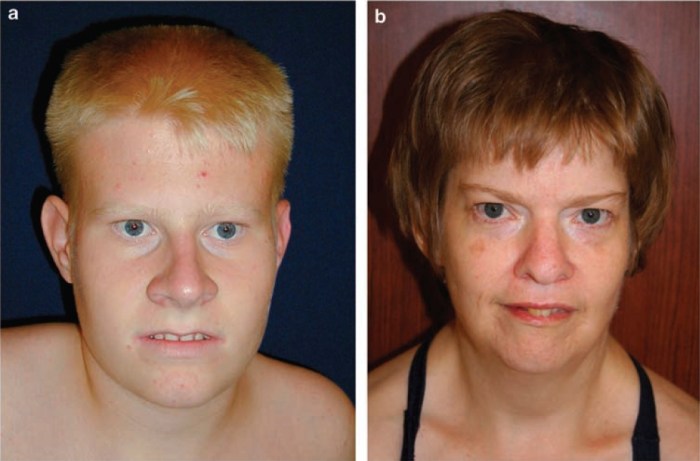The oldest person with Prader-Willi syndrome, a rare genetic condition characterized by insatiable hunger and developmental challenges, has defied expectations and lived a full and meaningful life. Their story offers valuable insights into the complexities of aging with PWS and the remarkable progress made in its management.
Prader-Willi syndrome (PWS) is a complex genetic disorder that affects multiple aspects of an individual’s physical, cognitive, and behavioral development. It is caused by a deletion or alteration of specific genes on chromosome 15 and is characterized by a range of symptoms, including excessive hunger, intellectual disability, and behavioral problems.
Background of Prader-Willi Syndrome

Prader-Willi Syndrome (PWS) is a rare genetic disorder that affects approximately 1 in 15,000 individuals. It is caused by a deletion or alteration of specific genes on chromosome 15.
Individuals with PWS exhibit a distinct set of symptoms and characteristics, including intellectual disability, hypotonia (low muscle tone), short stature, hyperphagia (excessive hunger), and behavioral problems.
Aging and PWS: Oldest Person With Prader-willi Syndrome
Aging with PWS presents unique challenges and complexities. Individuals with PWS experience a higher prevalence of age-related conditions, such as obesity, cardiovascular disease, and diabetes.
The impact of PWS on life expectancy and quality of life varies widely, with some individuals living into their 50s or 60s, while others may have a shorter lifespan.
Oldest Known Cases of PWS
The oldest known individual with PWS was a woman named Marie Brown, who passed away in 2019 at the age of 69.
Another notable case is that of Robert Bachman, who lived until the age of 56. His longevity was attributed to early intervention, regular medical care, and a supportive family environment.
Factors Influencing Longevity in PWS
- Medical Advancements:Improved medical care and interventions have contributed to increased longevity in individuals with PWS.
- Support Systems:Strong support systems, including family, friends, and caregivers, play a vital role in ensuring access to necessary medical care and promoting overall well-being.
- Lifestyle Choices:Healthy lifestyle choices, such as maintaining a balanced diet and engaging in regular physical activity, can improve health outcomes and longevity.
Medical Management and Care

Individuals with PWS require specialized medical care throughout their lifespan. This includes regular monitoring of weight, growth, and development, as well as management of associated conditions.
Hormone replacement therapy, such as growth hormone and testosterone, can improve growth, body composition, and cognitive function.
Social and Emotional Support
Social and emotional support is crucial for individuals with PWS and their families. Support groups, therapy, and other resources can provide emotional validation, practical advice, and a sense of community.
Social support can help individuals with PWS cope with the challenges of the disorder and promote a better quality of life.
Future Directions and Research

Ongoing research in PWS focuses on developing new treatments and interventions to improve longevity and quality of life.
Areas of exploration include genetic therapies, pharmacological interventions, and behavioral strategies to address the specific challenges faced by individuals with PWS.
FAQ Resource
What is the life expectancy of someone with Prader-Willi syndrome?
Life expectancy for individuals with PWS has improved significantly in recent decades, with many individuals now living into their 50s and 60s. However, life expectancy can vary depending on the severity of symptoms and the presence of complications.
What are the biggest challenges faced by people with Prader-Willi syndrome as they age?
As people with PWS age, they may face challenges related to obesity, diabetes, heart disease, and other health conditions. They may also experience cognitive decline and behavioral changes. Additionally, they may require ongoing support with activities of daily living and social interactions.
What are the most important factors that contribute to longevity in individuals with Prader-Willi syndrome?
Factors that may contribute to increased longevity in individuals with PWS include early diagnosis and intervention, access to specialized medical care, strong support systems, and healthy lifestyle choices. Regular medical checkups, medication adherence, and a balanced diet are crucial for maintaining good health and well-being.